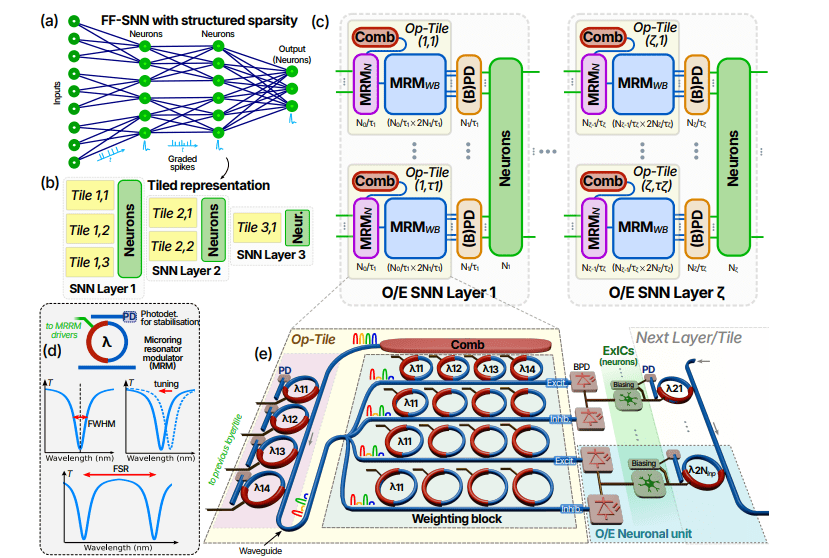This week’s science news was bursting with mind-blowing astronomical observations, led by new discoveries about the origins of the comet 3I/ATLAS.
The comet, an interstellar interloper from far beyond our solar system, was first spotted in late…

This week’s science news was bursting with mind-blowing astronomical observations, led by new discoveries about the origins of the comet 3I/ATLAS.
The comet, an interstellar interloper from far beyond our solar system, was first spotted in late…

“[The clutch] is like 1950s technology—it’s really boring,” Westerman said (“boring,” for grid operators, is the highest form of praise). “The marginal cost of putting this in is like nothing compared to the cost of the plant.”
A company called SSS has built these clutches for decades. One is nearly operational in the state of Queensland at the Townsville gas-fired plant, which Siemens Energy is converting into what it calls a “hybrid rotating grid stabilizer.” Siemens says this project is the world’s first such conversion of a gas turbine of this size.
That particular retrofit took about 18 months and involved some relocating of auxiliary components at Townsville to make room for the new clutch. So it’s not instantaneous, but far easier than building a new synchronous condenser from scratch, and about half the cost, per Siemens.
Some novel long-duration storage techniques also provide their own spinning mass. Canadian startup Hydrostor expects to break ground early next year on a fully permitted and contracted project in Broken Hill, a city deep in the Outback of New South Wales.
Broken Hill lent its name to BHP, which started there as a silver mine in 1885 and has grown to one of the largest global mining companies. More recently, the desert landscape played host to the postapocalyptic car chases of Mad Max 2. Now, roughly 18,000 people live there, at the end of one long line connecting to the broader grid.
Hydrostor will shore up local power by excavating an underground cavity and compressing air into it; releasing the compressed air turns a turbine to regenerate up to 200 megawatts for up to eight hours, serving the community if the grid connection goes down and otherwise shipping clean power to the broader grid.
But unlike batteries, Hydrostor’s technology uses old-school generators, and its compressors contribute additional spinning metal.
“We have a clutch spec’d in for New South Wales, because they need the inertia,” Hydrostor CEO Jon Norman said. “It’s so simple; it’s like the same clutches on your standard car.”
Transmission grid operator Transgrid ran a competitive process to determine the best way to provide system security to Broken Hill in the event it had to operate apart from the grid, Norman said. That analysis chose Hydrostor’s bid to simply insert a clutch when it installs its machinery.
The project still needs to get built, but if up-and-coming clean storage technologies could step in to provide that grid security, it wouldn’t all have to come from ghostly gas plants lingering on the system.
“It’s a different feeling [in Australia]—there’s a can do, go get ’em, ‘put me in coach’ attitude,” said Audrey Zibelman, the American grid expert who ran AEMO before Westerman. “When you’re determined to say how best to go about this, as opposed to why it’s hard or why it doesn’t work, the solutions appear.”

Apple released iOS 26 on Sept. 15, and while the update didn’t include any new emoji, a future iOS 26 update will bring eight new emoji to your iPhone. The Unicode Consortium approved eight emoji in September as part of Unicode 17.0. That…

Cameron Crowe has a vivid memory of the day he began filming his own life story. It was the summer of 1999 and he was back in his home city of San Diego, on the same streets where he had spent his surreal teenage years, flitting between suburban…

The pursuit of energy-efficient computing increasingly focuses on mimicking the human brain, leading researchers to explore spiking neural networks. Matěj Hejda, Aishwarya Natarajan, Chaerin Hong, and colleagues at Hewlett Packard…

Coco Gauff found a way through to the 2025 Wuhan Open final after an almighty battle with Olympic gold medallist Jasmine Paolini.
The USA tennis star secured her first win in four meetings against the Italian, as she triumphed in the WTA 1000…

Novak Djokovic gave his all but could not find his way through to the final of the 2025 Shanghai Masters.
The men’s singles tennis Olympics gold medallist was beaten in the semi-finals of the ATP Masters 1000 tournament by world No. 204 Valentin…

Research published this week indicates that North Korean scammers are trying to trick US companies into hiring them for architectural design work, using fake profiles, résumés, and Social Security numbers to pose as legitimate workers. The hustle fits into longstanding campaigns by the hermit kingdom to steal billions of dollars from organizations around the world using careful planning and coordination to pose as professionals in all different fields.
Under pressure from the Department of Justice, Apple removed a series of apps from its iOS App Store this month related to monitoring US Immigration and Customs Enforcement activity and archiving content related to ICE’s actions. As more apps are removed, multiple developers told WIRED this week that they aren’t giving up on fighting Apple over the decisions—and many are still distributing their apps on other platforms in the meantime.
WIRED examined increasing warnings from software supply chain security researchers that the proliferation of AI-generated software in codebases will create an even more extreme version of the code transparency and accountability issues that have come up with widespread integration of open source software components. And Apple announced expansions of its bug bounty program this week, including a maximum $2 million payout for certain exploit chains that could be abused to distribute spyware, and additional bonuses for exploits found in Apple’s Lockdown Mode or in beta versions of new software.
But wait, there’s more! Each week, we round up the security and privacy news we didn’t report in depth ourselves. Click the headlines to read the full stories. And stay safe out there.
The notorious spyware vendor NSO Group, known for developing the Pegasus malware, has faced financial issues since losing a long legal battle against the secure messaging platform WhatsApp as well as a lawsuit filed by Apple. Now, the company, which has long had Israeli ownership, has been purchased by a group of US-based investors led by movie producer Robert Simonds, who helped finance Happy Gilmore, Billy Madison, The Pink Panther, Hustlers, and Ferrari, among many other films. The deal is reportedly worth “several tens of millions of dollars” and is close to completion. Israel’s Defense Export Control Agency (DECA) within the Ministry of Defense will need to approve the sale. Use of mercenary spyware has increased within some US federal government agencies since the beginning of the Trump administration.
Hundreds of national security and cybersecurity specialists who work in the US Department of Homeland Security have faced mandatory reassignment in recent weeks to roles related to President Donald Trump’s mass deportation agenda. Bloomberg reports that affected workers are largely senior staffers who are not union eligible. Workers who refuse to move roles will reportedly be dismissed. Members of DHS’s Cybersecurity and Infrastructure Security Agency (CISA) who have faced reassignment reportedly worked on “issuing alerts about threats against US agencies and critical infrastructure.” For example, CISA’s Capacity Building team has faced a number of reassignments, which could hinder access to emergency recommendations and directives for high-value federal government assets. Workers have been moved to agencies including Immigration and Customs Enforcement, Customs and Border Protection, and the Federal Protective Service.
A recent breach of a third-party customer service provider used by the communication platform Discord included a trove of data from more than 70,000 Discord users that contained identification documents as well as selfies, email addresses, phone numbers, some home location information, and more. The data was collected as part of age verification checks, a mechanism that has long been criticized for centralizing users’ sensitive information. 404 Media reports that the breach was perpetrated by attackers who are attempting to extort Discord. “This is about to get really ugly,” the hackers wrote in a Telegram channel on Wednesday while posting the stolen data.
US Immigration and Customs Enforcement inked a $825,000 contract in May with TechOps Specialty Vehicles (TOSV), a Maryland-based company that manufactures equipment and vehicles for law enforcement. The company provides products including rogue cellphone towers that are used for phone surveillance and sometimes called “stingrays” or “cell-site simulators.” Public records reviewed by TechCrunch show that the agreement describes how the company “provides Cell Site Simulator (CSS) Vehicles to support the Homeland Security Technical Operations program” and is a modification for “additional CSS Vehicles.” TOSV also began a similar $818,000 contract with ICE in September 2024, prior to the start of the Trump administration. In an email to TechCrunch, TOSV president Jon Brianas declined to share details about the contracts but confirmed that the company does provide cell-site simulators. The company does not manufacture them itself, he said.